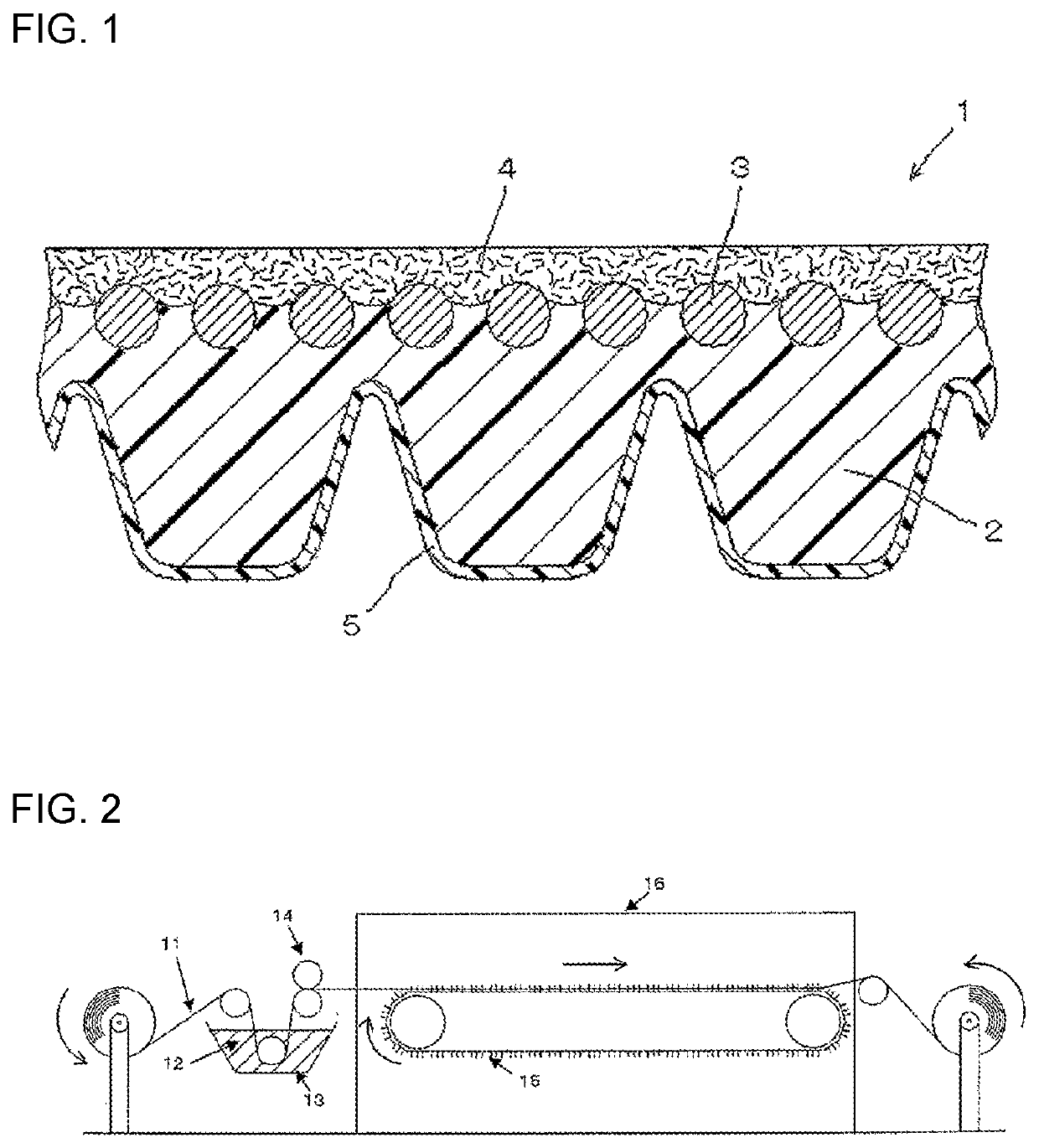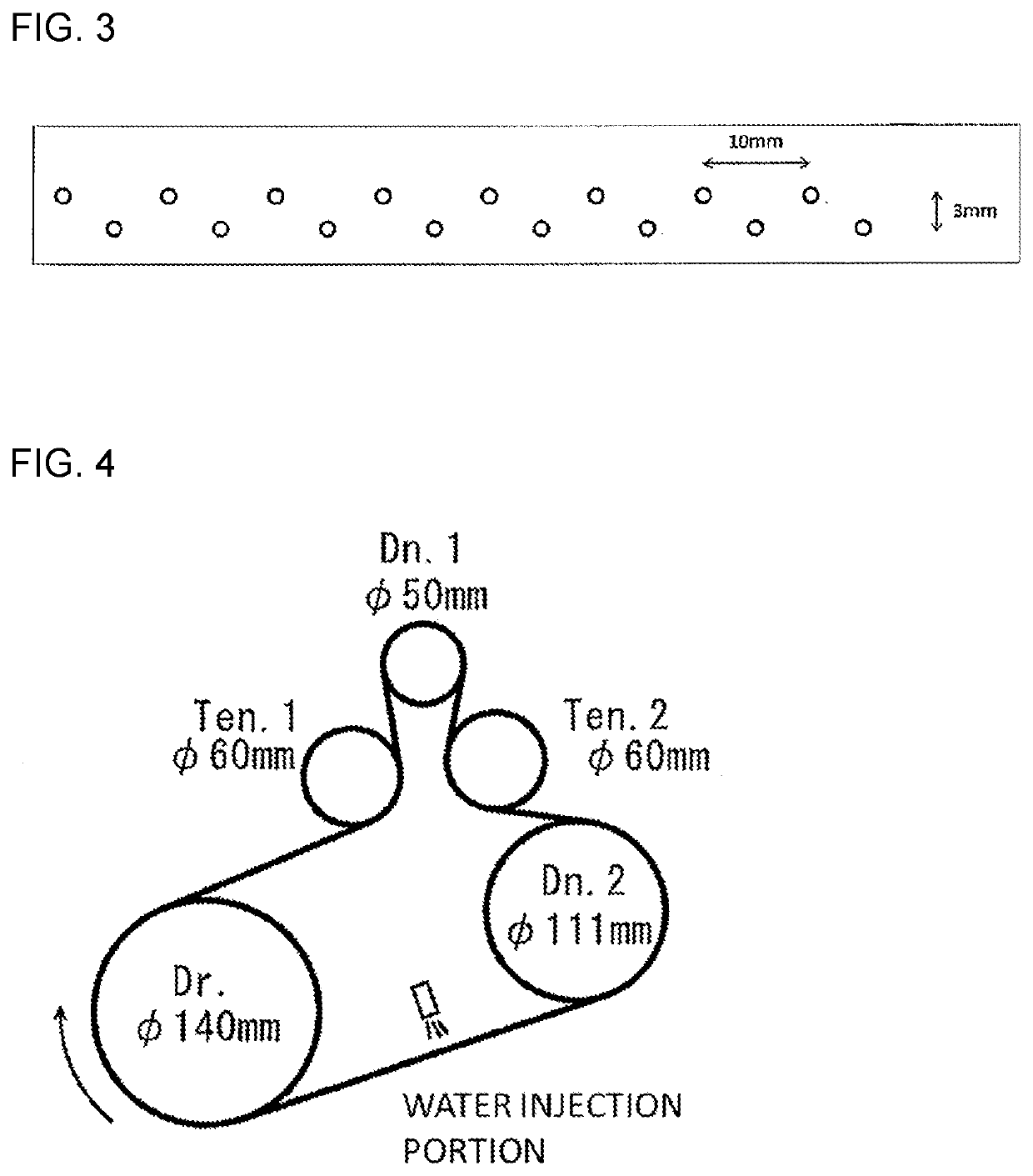Friction transmission belt and production method therefor
a transmission belt and friction technology, applied in the direction of vegetal fibres, mechanical devices, other domestic objects, etc., can solve the problems deformation and tear of fibrous members, bending and breaking of pins of tenters, etc., to achieve excellent submerged performance, improve the releasability of the obtained precursor (composite fibrous layer sheet) from the pin, and reduce the effect of deterioration of transmission performan
- Summary
- Abstract
- Description
- Claims
- Application Information
AI Technical Summary
Benefits of technology
Problems solved by technology
Method used
Image
Examples
examples 1 to 7 and reference example 1
[Preparation of Thermally Reactive Isocyanate and Resin Component Impregnated Knitted Fabric]
[0154]In Examples 1 to 6 and Reference Example 1, a cotton spun yarn (yarn count: 40, one yarn) as a cellulose-based fiber and a PTT / PET conjugate composite yarn (fineness: 84 dtex) as a synthetic fiber were knitted at a mass ratio of cellulose-based fiber to synthetic fiber of 80 / 20 to produce a knitted fabric (fibrous member) whose knitted structure is weft knitting (moss stitch, two layers). The thickness of the obtained knitted fabric was 0.85 mm, and the density of the knitted fabric (wale+course) was 100 yarns / inch. A surface layer was formed of cellulose-based fibers, and an inner layer was formed of synthetic fibers.
[0155]In Example 7, a cotton spun yarn (yarn count: 40, one yarn) as a cellulose-based fiber and a PTT / PET conjugate composite yarn (fineness: 84 dtex) as a synthetic fiber were knitted at a mass ratio of cellulose-based fiber to synthetic fiber (cellulose-based fiber / syn...
PUM
| Property | Measurement | Unit |
|---|---|---|
| dissociation temperature | aaaaa | aaaaa |
| dissociation temperature | aaaaa | aaaaa |
| dissociation temperature | aaaaa | aaaaa |
Abstract
Description
Claims
Application Information
 Login to View More
Login to View More - R&D
- Intellectual Property
- Life Sciences
- Materials
- Tech Scout
- Unparalleled Data Quality
- Higher Quality Content
- 60% Fewer Hallucinations
Browse by: Latest US Patents, China's latest patents, Technical Efficacy Thesaurus, Application Domain, Technology Topic, Popular Technical Reports.
© 2025 PatSnap. All rights reserved.Legal|Privacy policy|Modern Slavery Act Transparency Statement|Sitemap|About US| Contact US: help@patsnap.com



